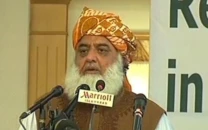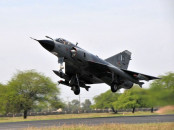Security during Muharram
The management of every imambargah should form a ‘watch’ committee of volunteers to monitor security.

Security during Muharram
The following steps would be useful in preventing a future tragedy: 1) The management of every imambargah should form a ‘watch’ committee of volunteers to monitor security. A team of young unarmed volunteers should be formed to carry out round-the-clock watch and a body search of all persons entering the imambargah and to observe any suspicious activity inside and around its premises. 2) Imambargahs should be combed before and after a majlis is to be held to ensure that no suspicious objects are lying or concealed anywhere inside or close to the venue. Any suspicious item should warrant an immediate call to the police. 3) All entrances to an imambargah should remain locked except the main one, which should be manned either by policemen or volunteers. 4) All windows and openings of the imambargah should have iron grills with a wire-mesh covering so that no one is able to intrude or throw something like a hand grenade from outside. 5) In the larger and more prominent imambargahs, the government can consider installing CCTV surveillance cameras. 6) Rooftops and balconies of buildings on both sides of procession route should be manned by the police/Rangers.
Cellular phone services should not be suspended on the ninth and tenth of Muharram in the name of security. Suspension of cellular phone services not only causes inconvenience for subscribers, it also becomes a security and safety risk for people since they cannot call any emergency service such as the police, fire brigade, bomb disposal squad and ambulance in the event that something bad happens. It should be the responsibility of the Pakistan Telecommunication Authority and the cellular companies to monitor the calls and messages of cell phones. During the Olympics in London this year, despite apprehensions of a terrorist attack, cellular phone services were never suspended — of course, security was kept very tight without disturbing the people.
Sqn Ldr (retd) S Ausaf Husain
Published in The Express Tribune, November 11th, 2012.



















COMMENTS
Comments are moderated and generally will be posted if they are on-topic and not abusive.
For more information, please see our Comments FAQ